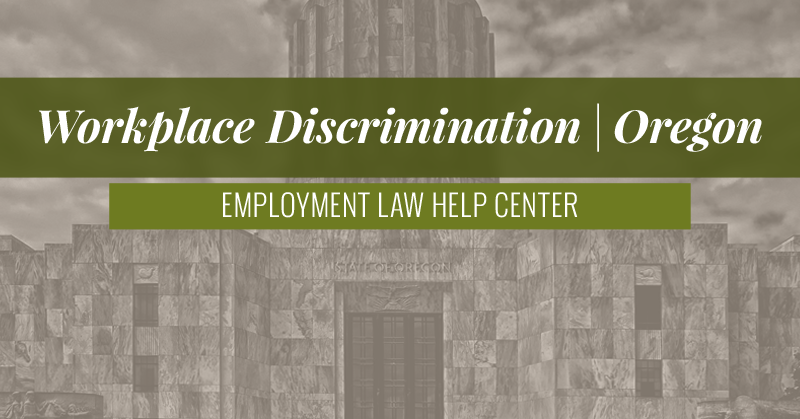Oregon Workplace Discrimination
The primary purpose of Oregon antidiscrimination laws is to protect workers throughout the state from unlawful discrimination in employment, which may include discriminatory hiring or firing, sexual harassment, or negative employment decisions made in retaliation for an employee exercising his rights. In Oregon, any employee that has been unlawfully discriminated against at work may be entitled to financial compensation for back pay, compensatory damages, punitive damages, attorney fees, and other related damages. However, an employee who brings an employment discrimination case in court will have the burden of proof, meaning he or she must provide evidence of the unlawful discrimination and any damages he or she incurred as a result of the discrimination. If you live in Oregon, and you have been discriminated against at work, contact a skilled Oregon employment discrimination lawyer today to discuss your options for legal recourse.

Protected Categories in Oregon
There are state and federal antidiscrimination laws in place in Oregon that prohibit the unequal or unfair treatment of a person or group of people at work because of their membership in a “protected class,” which is a group of people with a shared characteristic who are legally protected from discrimination or harassment on the basis of that characteristic. In Oregon, the following characteristics are protected:
- Race
- Color
- Religion
- Sex (including pregnancy)
- Age (40 or older)
- National origin
- Disability
- Genetic information
- Sexual orientation
- Marital status
- Veteran status
- Victims of domestic violence
- Gender identity

Harassment and Retaliation in the Workplace
Harassment is another type of employment discrimination that violates federal anti-discrimination laws, including Title VII of the Civil Rights Act of 1964, the Americans with Disabilities Act of 1990, and the Age Discrimination in Employment Act of 1967. Harassment in the workplace is defined by the U.S. Equal Employment Opportunity Commission (EEOC) as offensive or unwelcome conduct that is based on a protected characteristic, such as race, color, religion or sex, including offensive jokes, name-calling, slurs, physical assaults, intimidation, ridicule or mockery. According to the EEOC, harassment in the workplace can be perpetrated by the employee’s boss, supervisor, coworker, or anyone else at work, and becomes unlawful when:
- Enduring the offensive conduct becomes a condition of continued employment, or
- The harassment becomes so severe and pervasive that it creates a “hostile work environment,” or a work environment that a reasonable person would consider hostile, intimidating or abusive
Another type of discrimination or harassment in the workplace is called retaliation, and this occurs when an employer or another person at work takes negative employment action against an employee in retaliation for filing a discrimination charge, participating in a discrimination investigation, proceeding or lawsuit, or opposing employment practices that the employee reasonably believes discriminate against individuals, in violation of state and federal anti-discrimination laws.
An Oregon Workplace Discrimination Lawyer Can Help
Workplace discrimination is defined as any employment decision or practice that has a disproportionate adverse impact on members of a protected class, and this applies to both employees and job applicants. In Oregon, workplace discrimination can occur at any stage of the employment cycle, including hiring, recruitment, promotions, wages, benefits, discipline and firing (wrongful termination), when employer makes a negative decision on the basis of an employee’s protected characteristic, or in retaliation for exercising his rights. If you believe you have been the victim of workplace discrimination in Oregon, consult an experienced Oregon employment law attorney today to discuss the possibility of filing a discrimination claim against your employer or supervisor.




